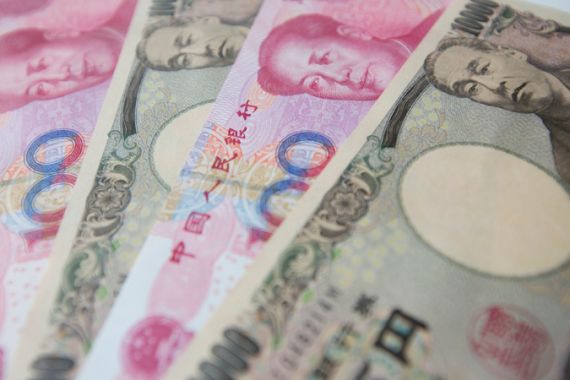China and Japan begin direct currency trading
Two countries can now trade currencies without using US dollar as intermediary, as Beijing pushes global use of yuan.

China and Japan have started direct currency trading as Beijing marked another stage on its journey to foster the
yuan’s use internationally.
The two countries are important trading partners, but about 60 per cent of their mutual trade is denominated in US dollars. They agreed on Friday that Japan will add yuan to its foreign-exchange reserves.
Keep reading
list of 4 itemsBehind India’s Manipur conflict: A tale of drugs, armed groups and politics
China’s economy beats expectations, growing 5.3 percent in first quarter
Inside the pressures facing Quebec’s billion-dollar maple syrup industry
Last December, the two countries agreed to a series of deals to promote the use of the yuan in trade and investment in order to reduce the use of US dollar in Asia, the world’s fastest growing region.
The market participants can now exchange Japanese yen for Chinese yuan without having to use the US dollar as an intermediary currency, making foreign trade settlement more convenient and cutting transaction costs.
Chinese state media have reported that the foreign exchange launch will save the country about $3bn in annual costs tied to using the dollar in trade transactions.
On the first day of trading under the new practice, dealers said the yuan weakened against the yen due to the Japanese currency’s overnight gains against the dollar.
‘Future reforms’
Rates in the Chinese and Japanese markets could be different at the outset but are likely to converge very quickly, traders in Tokyo said.
“Yuan-yen direct trading is just a small step toward making the yuan a reserve currency, but what’s foremost is whether China can carry out future reforms,” said Zhang Zhiwei, chief China economist of Nomura Securities.
China, the world’s second-largest economy just ahead of Japan since 2010, gradually moves to make the yuan freely convertible that would rival the dollar, a policy that has fostered trade tensions with the United States.
China’s tightly controlled foreign exchange regime is a long-running source of friction with the US, which accuses Beijing of artificially undervaluing the yuan to boost exports.
Since the 2008 global financial crisis, China has signed currency swap agreements worth more than $238bn with dozens of countries, including the Republic of Korea and Malaysia.